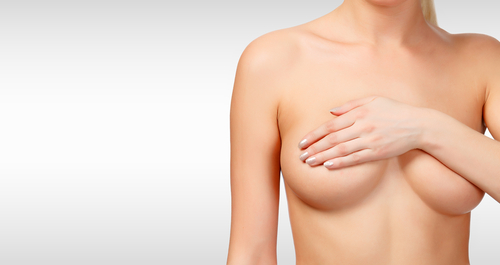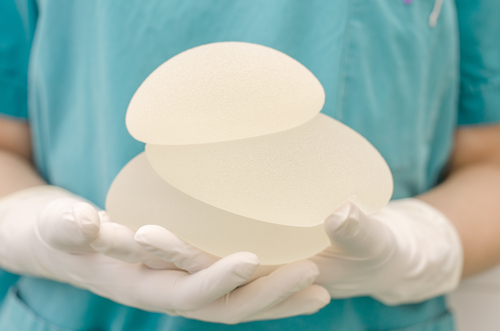Capsular contracture is a condition that most often affects women who’ve had breast surgery. It occurs when scar tissue builds up around your implant.
The result can be painful and can interfere with your ability to be active, lift heavy objects, and wear fitted clothing. It’s frustrating and uncomfortable, but it’s not impossible to treat or resolve.
How can you know if you have this condition? What are some capsular contracture symptoms to look out for? This article has the answers. Keep on reading to learn more about this one.
1. Unnatural Hardening
It is often accompanied by a gradual or sudden hardening of the breast implant that makes it firmer than it should be. To detect the condition, doctors recommend regular self-assessments to check for hardness and lumps.
Some of the causes of this condition include trapped bacteria, leaky implants, or trauma to the breast. Your doctor may drain the fluid buildup related to scar contracture. The offending implant may change, and thoroughly clean the surrounding area.
2. Changes in Shape or Position
When the body forms a hard, fibrous capsule, it can make the affected area feel unnaturally firm and change its shape. If the condition persists, the implant may get squeezed out of its original position.
Another common cause of such implant shifts is aging. Over time, the natural aging process can cause the skin and muscles to loosen, resulting in the implant shifting away from its intended position.
Incorrect implant placement or excessive trauma can also damage the implant and cause a change in shape or position. However, most cases can be prevented with proper aftercare.

3. Unilateral Implant Size Unevenness
Unilateral implant-sized unevenness can cause one breast to appear larger or smaller than the other. Some of its causes include bacterial contamination of the implant and problems with the surgical technique.
Another cause of unilateral implant size unevenness is implant rupture or damage. This occurs when there is a break or tear in the implant’s casing. It also includes a decrease in saline solution, which is used to fill the implant.
To reduce the risk, patients should only have implant surgery performed by a qualified plastic surgeon. If you are looking for this one, you can visit Hamptons plastic surgery for the best outcome.
4. Chronic Breast Pain and Tenderness
The pressure from the tight scar tissue can cause it to become irritated, leading to pain and tenderness. Pain often increases with activity or if an implant shifts or moves.
Capsular contracture signs may develop gradually or happen suddenly and can range from mild pain to moderate to severe. It can also lead to extreme tenderness when pressure is applied to the area.
The usual symptoms are pain or tenderness in the breast area, which is often worse during physical activity. The implant itself may become visible with pain and discomfort, most noticeable when touched or during movement.
5. Visible Abnormalities of the Breast Skin
It can cause the breast to become hard, tender to the touch, and even distorted in shape. In severe cases, it can cause the implant to become visible through the skin.
Trauma, hematoma, infection, and even poor implant positioning as possible culprits. In any case, people who have undergone breast augmentation should keep an eye out for any visible abnormalities that may signal capsular contracture.
Patients may also be predisposed due to the use of substandard implants or other implant-based materials. The use of certain medications has been linked to the risk of developing capsular

6. Swelling of Breast Tissue
This is caused by the formation of collagen fibers around the implant that hardens and causes the breast to swell. It occurs when the capsule of fibrous tissue that normally forms around the implant becomes too tight or thick.
It can be very uncomfortable and, in extreme cases, can distort the shape of the breast. It can also cause the implant to be hard and painful to the touch.
These symptoms should not be overlooked as they can lead to further complications if ignored. It is important to seek timely medical attention to reduce the risk of symptom progression.
7. Increased Visible Rippling
Rippling occurs when the implant’s outermost barrier, a thin capsule of scar tissue, begins to break down. This typically occurs because the implant manufacturer has not met predetermined standards.
It also includes if where there were pre-existing medical problems that suddenly became an issue. It can also be caused by poor or aggressive placement of the implants.
Aging implants and rough surface implants will usually result in increased rippling. Sometimes, the implant is too large for the patient’s body type, leading to overextension of the breast pocket and increased wrinkling or rippling.
8. Changes in Sensation
One of the symptoms of capsular contracture is a decrease in sensation over the affected area. This could include numbness, tingling, or a feeling of heaviness, tightness, or pain.
In some cases, it can also cause a painful burning sensation in the breast or nipple area. Moreover, it may lead to movement restrictions or a restricted range of motion for certain activities.
Patients should watch out for any changes in sensation over the affected site and monitor it regularly. If the sensation changes become severe, they should seek medical attention from their doctor for capsular contracture treatments.
9. Inflammation or Redness

Allergic responses to implants, infections, or trauma can result in redness and swelling of the breast. Immune system responses caused by implant leakage can also trigger an inflammatory response which can cause inflammation.
Infection may cause inflammation and should be treated by a medical professional. Other than infection, poor post-op care may also increase the risk of capsular contracture.
Patients should follow the doctor’s instructions to remain free of infection and avoid contact with irritants. Self-care should be performed, such as gently massaging the breasts and wearing supportive bras to prevent scar tissue from forming.
A Guide to Capsular Contracture Symptoms
Capsular contractures affect many people and can cause serious pain and swelling. It’s important to be aware of the capsular contracture symptoms and take the necessary steps to keep yourself safe.
Early detection and treatment often lead to successful outcomes. If you’re currently experiencing any of the symptoms outlined in this guide, check in with your doctor for regular checkups.
Have you found this topic informative and engaging? If so, we encourage you to discover more insightful topics by exploring our blog.





